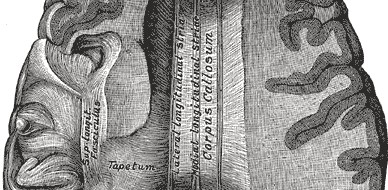General Rules
- One entry per issue, regardless of if submitting as solo artist or as a collaborator. Please do not submit multiple pieces in one file. Exceptions may be made if the pieces are connected and do not stand alone.
- Do NOT include the artist/author name on the items and filenames being submitted. All submissions will be blind reviewed. Provide the author/artist name on the submission form only.
- All authors and artists whose work may discuss or reference patients or patient care must follow and comply with HIPAA before submitting. For those affiliated with UW-Madison, you may contact the Office of Compliance if you have concerns. For those affiliated with UW Health, please contact your institution’s HIPAA compliance office.
- No simultaneous or previously published submissions accepted.
- Submission is not a guarantee of publication. We reserve the right to accept or reject submissions at our discretion and/or to remove content from the publication at any time.
- We aim to publish a wide variety of voices from our community and are especially keen to publish work by artists not yet published in Corpus Callosum. Therefore, we consider if artists/authors have been published before or not in final decisions.
Who Can Submit:
The editorial board welcomes submissions from students, staff, and faculty of the UW-Madison health sciences community including:
- UW Health/Hospital
- School of Medicine and Public Health
- School of Nursing
- School of Pharmacy
- School of Veterinary Medicine
- University Health Services
- Related health programs on campus (e.g. Occupational Therapy and Kinesiology) and possibly other UW departments conducting research into the health sciences
Artists must submit their own, original work; submissions on others’ behalf will not be reviewed.
For collaborative work, at least one of the collaborators must be affiliated with the campus health sciences community. The affiliated collaborator should be the one to complete the submission form.
How & When:
The Spring 2025 issue submission period is now closed.
- Please check back for the published issue.
Specific Rules
Writing:
- Original writings only. No copies or AI-generated art.*
- Word limits:
- Essays/non-fiction and short stories no more than 2500 words
- Flash fiction no more than 500 words
- Poems no more than 1000 words
- Pieces will not be edited. Submissions should be checked for spelling and grammar, double-spaced, and 12 pt font.
- File type accepted: .doc/.docx, no larger than 24MB.
Visual art:
- Original art only. No copies, photographs of other artists’ work, or AI-generated art.*
- We accept digital 2D art or well-photographed 2D and 3D art. Photographed art must have good lighting and no distracting backgrounds.
- Size and resolution: Must be at least 1200px on the longest side and 300 dpi
- File types accepted: jpg, png, no larger than 24MB
Multimedia:
- Original audio and video only. No covers, copies, or AI-generated art.*
- Size: No larger than 24MB
- File types accepted: mp3, m4a, ogg, wav, mp4, m4v (MPEG-4), mov, wmv, avi, mpg, 3gp (3GPP)
*Corpus Callosum will not accept AI-generated materials of any kind due to the unanswered questions around their originality, authorship, and legality:
- AI-generated works are created from datasets of work by other creators, often without credit, payment, or the creators’ knowledge and consent. It is not clear whether AI-generated work is original, as required by our submission guidelines.
- With the question of originality comes the question of authorship. At this time, we do not know if the artist is the human entering the prompt, the software interpreting the prompt and creating the work, or the artists from whose work the software is taking data. As stated above, artists must submit their own, original work.
- Currently, AI-generated work is not copyrightable in the U.S., which has implications for us as a publication as well as our creators.
As societies, governments, and the courts iron out these ethical, legal, and highly complex issues, we may change our submission guidelines in the future. Until then, Corpus Callosum will not accept AI-generated work. Thank you for your understanding.
